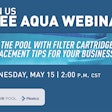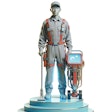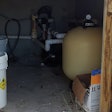For the service portion of our State of the Industry issue, we spoke we three of the industry’s leading service professionals to serve as our “service voices.” In these profiles, they share how their businesses fared last year, their strategies for success and their vision for the future. For 2013, we spoke with Bob Nichols, Pete Coccaro, Jr. and Stewart Vernon.

Bob Nichols is a 32-year veteran of the industry and a longtime member of the IPSSA Diamond Bar chapter, serving as its president from 2001 to 2009 and also as Director of Region 3 from 2009 to 2011. Last year Bob received IPSSA’s Terry Cowles Award for professionalism and service to his industry and community.
How’s business around Glendora this year?
People are telling me that things are starting to loosen up a bit more. More whole goods are being sold at local distribution, which is a good sign. For years, when we’d see a little surge like that in the spring, we used to attribute that to tax refunds coming back, but anymore, you take that check out and buy groceries (laughs).
Where is the service customer now, psychologically?
I talk to a lot of my customers every week. They’re not all that optimistic, but they do see some stability out there. And I think that will make a difference for us in terms of service and repair.
There’s always a lot going on in the California State Legislature. Do you think the stream of new laws coming from the legislature will change anything?
Legislation can only be as effective as its enforcement budget allows. When you look at legislation, you have to look at how it came through the ways and means committee. How are they going to pay for it? If they don’t address that, it’s dead in the water.
The really big deal over here now is the underground economy.
How does it impact our industry?
First, there’s sales tax fraud. If you’re going to resell a product in California, you must have a resale permit from the tax board. They circumvent that by showing up at the distributor with a business license. But when they sell that product to the customer, they don’t collect sales tax. So they charge less because they don’t have to send a percentage to the state — there’s no sales tax for the customer and no income tax for them on the profit, which is a violation of law and also of professional ethics. They’re dealing with cash and they pay their employees in cash.
Do they also buy equipment off the Internet to avoid paying sales tax on the purchase?
That might happen with the more sophisticated operation, but what we’re finding is that in the service and repair business, it’s not usually that sophisticated.
The level of entry into the service business is really low. In LA county, you’re supposed to be certified, but they don’t really enforce that. You just go down to the county building, pay your $80 for a business license, take that to the distributor, pick up your parts wholesale, and you’re in business.
The bigger guys, like the builders, the remodelers, the plasterers, where they get handicapped is their competitors are just paid cash, no worker’s comp, no contractor’s license and no liability insurance. That labor is a lot cheaper.
And for whatever reason, the customer says, “I’m getting a better deal from that cash-only guy than I am from the certified contractor.”
But if an issue arises, that customer has no recourse. And if one of those laborers working without worker’s comp falls into the pool and is crippled for life, the homeowner is liable. In that case, you’re going to be paying his bills for a long time.
So if you’re a legitimate business paying social security — what’s that now, 8 percent? — paying worker’s comp, paying insurance, health care, collecting sales tax, you’re going against somebody who is not paying for any of those things. And then there’s all the paperwork of collecting and submitting to the right places. That costs, too.
The underground economy has been with us for years and years, but the last five years it’s gotten much worse. Part of that is due to the recession; a lot of builder companies saw their business dwindle to nothing, and some of the people working for them threw a pole in their truck and became service technicians charging day labor rates for pool service.
They’re not looking at the future; they’re looking at right now. They’re trying to buy groceries and pay rent today. But if you’re not paying social security, you’re crazy. If you don’t pay in, you don’t get anything back, and you’ll need that money someday.
Anything selling particularly well for you?
Water conservation equipment. Phosphate removers and scale removers.
Those seem to be doing well. For years and years I was never one for the magical stuff to make your pool look good. The shelf is full of that stuff, but I always thought that by the time you paid for all the stuff you need, you could’ve drained the pool and put fresh water back in. I’m serious.
But now people are looking more critically at wasting water. They don’t want to drain if they don’t have to. So I’m finding that a lot of the pool additives from stain remover to phosphate remover are moving better for me than they ever have, because the customers are concerned that we don’t waste the water. And we have to give them something that will make them happy at the end. If they’re not happy after spending $200, you have a problem.
That’s why I’m always leary of a new chemical product. I usually try it on the sly on a few pools — you have to fund that yourself — to see how it works.
And then if it works, I’ll put it in the customer’s pool and tell them, “Hey Mrs. Jones, how do you like your pool? I used this and this.”
And she’ll say, “Oh. Thank you.”
And then she’ll go back in the house.
A lot of people tell me the variable speed pumps are selling better than ever.
The variable speed pump is still a tough first-time expense. I’m finding that the better-off customer or the more technical customer will purchase that. If they’re interested in technology, they’ll lean toward it.
It’s kind of a lead-in for me, when I can pull out my phone and show them the savings right then and there. I have a watt-meter, so I tell them their usage, and then I pull up the IPSSA charts and say, “This is what you’re paying now, and with the variable-speed pump, you’ll be paying something close to this.”
That online chart really does help sell. It’s the biggest sales help I have.
Internet sales are another big issue these days.
Well, the Internet drove prices down and ate into my markup, but I have to look back there and say there might have been a time when my markup was excessive. I had an expectation that it was going to be an easy ride forever, and it wasn’t.
And that also drove the underground service economy, giving people a chance to start hitting people on price. That’s what I think.
But if people want to buy stuff on the Internet and have me install it, I do it. I can either get paid to do that or sit at my desk and watch the other guy make money.
You’ve been doing this a long time. Why do you like this job?
I was a manufacturing manager before I got into the pool business. And I just thought I could run my own business, so I bought a pool route and grew that to about 450 accounts, but keeping good help was a nightmare. It really was. So I just started selling them off, and got down to where I could take care of it with just a little help here and there.
I think it’s the contact with people, the freedom to use my imagination to solve problems. You walk into a bad situation and you have to solve it as efficiently and as inexpensively as you can.
And that’s a good challenge. Every time I meet up with someone new, it’s a challenge to get them to deal with me. A lot of people who turn me down tell me, “Don’t take it personal,” but I do! I do take it personally. I don’t handle rejection well.
But you have to stay positive in this job. That’s important.
Comments or thoughts on this article? Please e-mail [email protected].
Want more from our Service State of the Industry story?







































